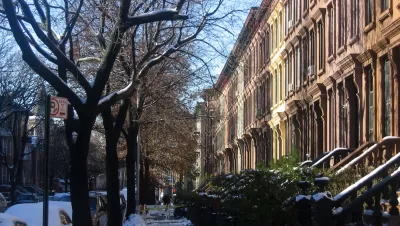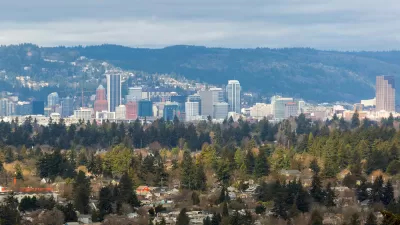Plans that focus on giving funds to renters and home buyers won't make housing affordable, and can inflate housing prices and rents.

In commentary for City Observatory, Joe Cortright argues that to address rising housing costs, cities need to reconsider supply and demand. "Rent and home purchase subsidies may help out a few individuals, but only at the cost of making the affordability problem worse for everyone else," Cortright says.
But that hasn't stopped policy makers from trying. "In Vancouver, the British Columbia provincial government has announced that it will match the down-payment that first-time homebuyers make to purchase a new residence," Cortright points out. Meanwhile in Portland, "… local landlords group has proposed that the state instead enact a rental subsidy, roughly modeled on the federal Section 8 voucher program. The proposal is that the state would allocate something on the order of about $20 million per year to provide rent subsidies of around $100 per month to as many as 20,000 low and moderate income households."
These demand-side solutions will benefit some, but the supply problem is likely to persist. Progressive programs to aid low income renters will help those who are organized and informed enough to access them. But, others will be negatively effected by more money being pumped into the system. In cities like Vancouver and Portland, which are already popular, stoking demand may be counterproductive.
FULL STORY: How not to fix housing affordability

Alabama: Trump Terminates Settlements for Black Communities Harmed By Raw Sewage
Trump deemed the landmark civil rights agreement “illegal DEI and environmental justice policy.”

Planetizen Federal Action Tracker
A weekly monitor of how Trump’s orders and actions are impacting planners and planning in America.

Why Should We Subsidize Public Transportation?
Many public transit agencies face financial stress due to rising costs, declining fare revenue, and declining subsidies. Transit advocates must provide a strong business case for increasing public transit funding.

Understanding Road Diets
An explainer from Momentum highlights the advantages of reducing vehicle lanes in favor of more bike, transit, and pedestrian infrastructure.

New California Law Regulates Warehouse Pollution
A new law tightens building and emissions regulations for large distribution warehouses to mitigate air pollution and traffic in surrounding communities.

Phoenix Announces Opening Date for Light Rail Extension
The South Central extension will connect South Phoenix to downtown and other major hubs starting on June 7.
Urban Design for Planners 1: Software Tools
This six-course series explores essential urban design concepts using open source software and equips planners with the tools they need to participate fully in the urban design process.
Planning for Universal Design
Learn the tools for implementing Universal Design in planning regulations.
Caltrans
Smith Gee Studio
Institute for Housing and Urban Development Studies (IHS)
City of Grandview
Harvard GSD Executive Education
Toledo-Lucas County Plan Commissions
Salt Lake City
NYU Wagner Graduate School of Public Service





























